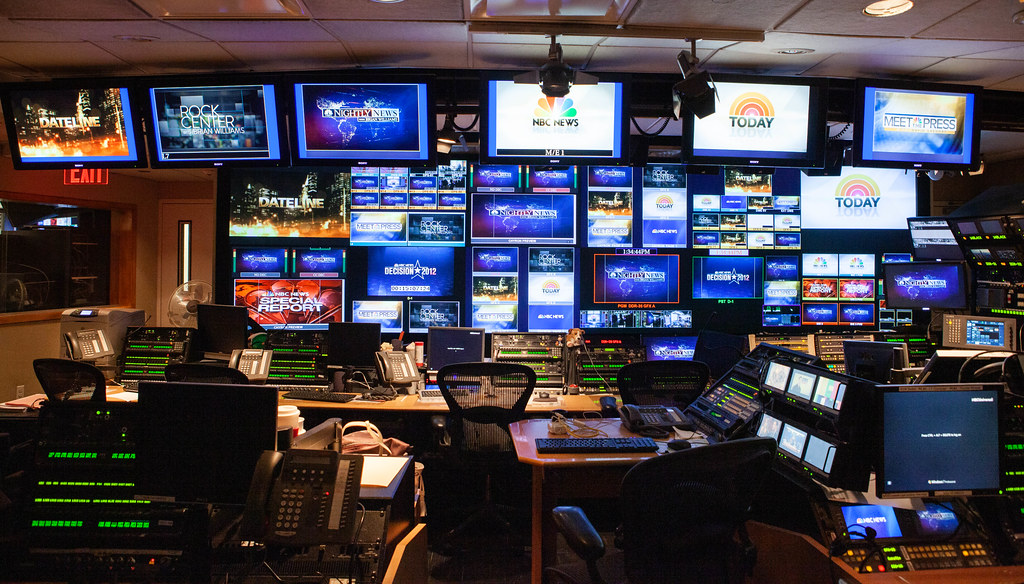Key Takeaways
- Gordon Sondland compared New York mayoral candidate Zohran Mamdani to Hitler on live TV.
- His comment sparked a heated debate on an MSNBC panel before polls closed.
- Anchor Ari Melber and former press secretary Jen Psaki pushed back on Sondland’s claims.
- The clash highlighted fears over Mamdani’s police plans and his support among young Jewish voters.
Gordon Sondland Sparks Outrage with Hitler Comparison
In a tense live TV moment, Gordon Sondland compared candidate Zohran Mamdani to Adolf Hitler. His words set off a fierce debate on MSNBC just before New York City polls closed. The discussion soon turned personal and sharply divided everyone on the panel.
Why Gordon Sondland’s Remark Shocked Viewers
Gordon Sondland, once a U.S. diplomat and impeachment witness, warned that Mamdani would harm New York’s economy and safety. He claimed Mamdani is “an antisemite” because the candidate said so. Then came the shocking line: “Hitler was good at voter turnout, too.”
This comparison stunned anchor Ari Melber and former press secretary Jen Psaki. They saw it as an extreme overstatement. Yet Sondland stuck to his view. He said he “takes Mamdani at his word” and fears the new mayor would cut police funding.
Key Players on the Panel
• Gordon Sondland – Former ambassador turned critic
• Ari Melber – MSNBC anchor guiding the debate
• Jen Psaki – Former White House press secretary
• Other guests – Political experts and strategists
The Debate Unfolds
First, Melber asked Sondland to explain why he called Mamdani an antisemite. Sondland pointed to a few controversial past statements. Melber replied that Mamdani never admitted to hating Jews. Then Sondland brought up voter turnout. He claimed Mamdani’s skill there might remind New Yorkers of a history they reject.
Melber shot back, calling the Hitler analogy an “extreme overstatement.” Then Psaki pressed Sondland on his doubts about Mamdani’s police stance. She noted polls show young Jewish New Yorkers actually back Mamdani. Sondland insisted he did not trust Mamdani’s promise to keep the police commissioner in place.
At one point, the studio grew quiet. People stared as each panelist waited their turn. Psaki asked, “What are you so afraid of?” She pointed out that Mamdani pledged to keep Jessica Tisch as commissioner. Sondland answered that any “run-in” would lead to her firing.
How the Public Reacted
Viewers took to social media in record numbers. Some agreed with Sondland’s warning about safety. Others saw his Hitler comparison as reckless. Many questioned why a former diplomat would use such loaded language. The debate trended on major platforms within minutes.
Polls before the show hinted at a close race. Democrats worried a controversial remark could hurt their candidate. Republicans saw a chance to highlight party splits. Meanwhile, New Yorkers prepared to cast ballots, unaware the TV moment would make headlines.
The Stakes for New York
New York City is a global financial hub. Its future leadership shapes policy on crime, housing, and business. A new mayor will face tight budgets and rising concerns over public safety. Gordon Sondland argued Mamdani’s plans would weaken police and harm commerce.
In contrast, supporters of Mamdani praised his grassroots strength. They saw him as a fresh face ready to challenge the status quo. His work in city council focused on tenant rights and community outreach. This blend of activism won him fans, especially among young voters.
What This Means for Journalism
This clash on MSNBC shows how live TV can spark rapid backlash. Anchor Ari Melber steered the talk while managing high emotions. His calm responses kept the debate from spiraling out of control. Psaki’s questions highlighted the need for fact-checking on air.
Moreover, the incident raises questions about opinion versus analysis. When panels mix experts with former officials, lines can blur. Viewers expect clear context, not unverified claims. Journalists must balance strong viewpoints with fair scrutiny.
Next Steps in the Race
Polls close, but reactions will echo in days to come. Gordon Sondland’s comments may energize or alienate voters. Candidates will address the fallout in campaign events. Debate coaches on both sides will refine their approach.
Observers will watch how city media cover the story. Will journalists challenge similar claims from other figures? Will public trust in live political talk shows rise or fall? Answers may shape TV formats for years ahead.
Takeaways for Voters
1. Listen to claims and ask for evidence.
2. Note how anchors handle extreme statements.
3. Check multiple sources before forming opinions.
4. Focus on policies, not only dramatic moments.
Frequently Asked Questions
What did Gordon Sondland say about Zohran Mamdani?
Gordon Sondland labeled Mamdani an antisemite and compared him to Hitler because of voter outreach skills. This sparked debate on live TV.
Why did Ari Melber call the remark an overstatement?
Ari Melber argued that comparing any candidate to Hitler is extreme. He felt it lacked proper context and evidence.
How did Jen Psaki challenge Sondland’s claim?
Jen Psaki pointed to polls showing young Jewish voters support Mamdani. She also noted Mamdani pledged to keep the police commissioner.
Could this moment affect the mayoral race?
Yes. High-profile comments can shape voter opinions. Both campaigns will likely address or leverage the controversy.
